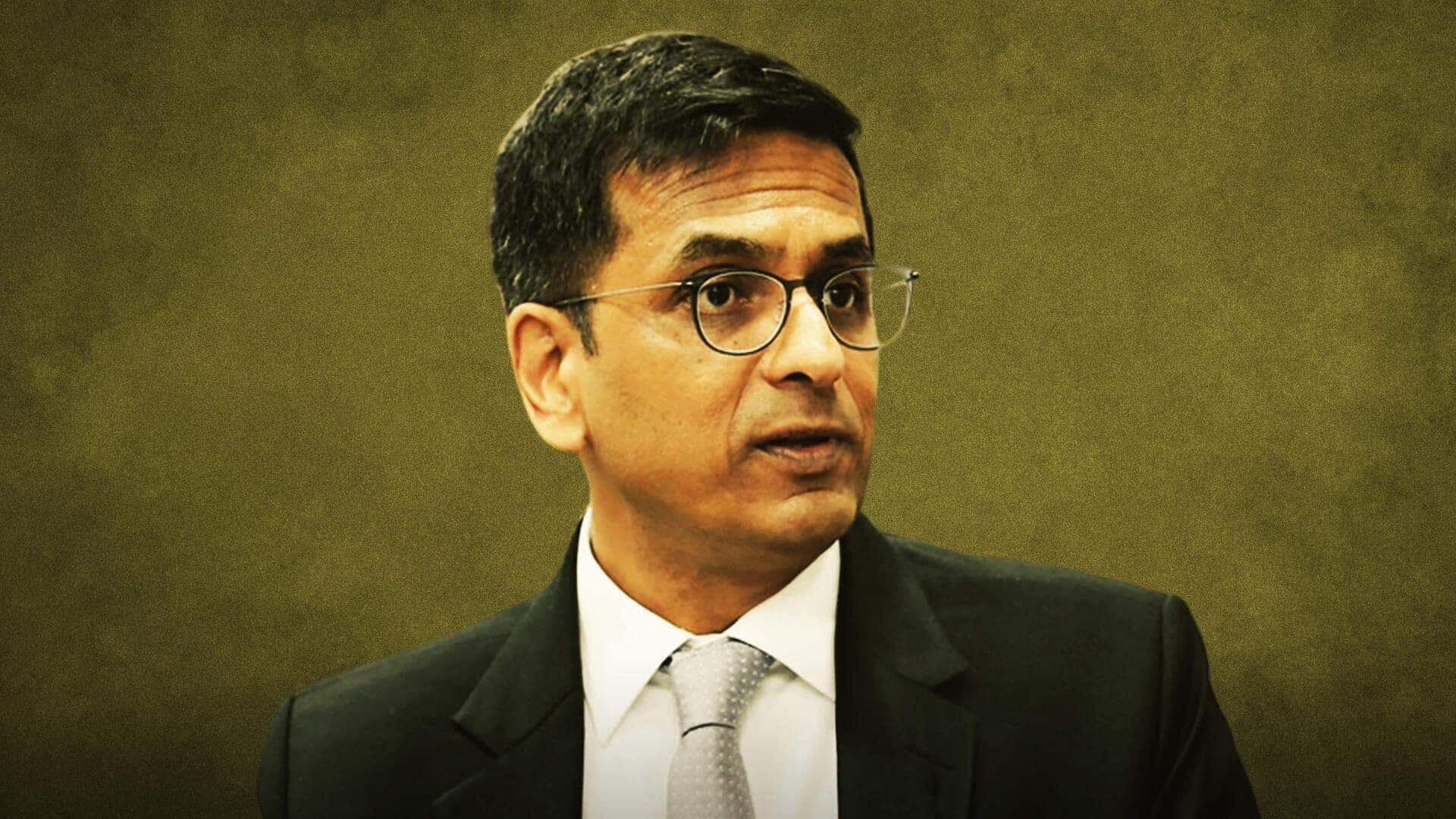
'50%…freshers are women': Chandrachud on whether judiciary is elite, male-dominated
What's the story
Former Chief Justice of India (CJI) DY Chandrachud has rejected allegations that the Indian judiciary is largely made up of or influenced by elite, male, Hindu upper-caste people.
Speaking to BBC India, he emphasized that more than 50% of new recruits in the district judiciary are women.
"There are states where the recruitment of women goes up to 60 or 70%," he told BBC's Stephen Sackur.
Judiciary composition
Higher judiciary reflects past legal profession status: Chandrachud
Chandrachud explained that the higher judiciary is a reflection of the legal profession's status two decades ago.
He said as legal education has become more accessible to women, this gender balance is now visible in the lower rungs of the Indian judiciary.
"In so far as gender balance in concerned, you find an increasing number of women coming into district judiciary and these are the women who will be climbing up," he added.
Constitutional perspective
Chandrachud defends stance on Article 370
During the interview, Chandrachud also defended his position on Article 370, which was abrogated in August 2019.
He said Article 370 was meant to be a "transitional provision" in the Constitution and asked if 75 years was too short a time for its abrogation.
Under his leadership, the Supreme Court upheld the President's power to abrogate Article 370, reorganizing Jammu and Kashmir into two union territories and the removal of its special privileges.
Twitter Post
Watch the interview here
Please watch this interview and repost for others.
— Bhavika Kapoor (@BhavikaKapoor5) February 13, 2025
DY Chandrachud interviewed by Stephen Sackur of BBC. He asked some really tough questions like 370 or Ayodhya. pic.twitter.com/dMkBn4ke2t
Political pressure
Chandrachud rejects claims of India becoming a '1-party' state
Addressing concerns of political pressure from Prime Minister Narendra Modi's government, Chandrachud rejected claims of India becoming a "one-party" state.
He referred to the results of the 2024 Lok Sabha elections as evidence of regional political strength.
He further rejected that the Supreme Court has been swayed by political forces, citing the court's record of granting bail to political leaders and activists as evidence that the rule of law are still intact.
Tenure reflection
Chandrachud reflects on his tenure as CJI
"Higher courts, particularly the Supreme Court, have sent a clear message that we are here to safeguard personal liberties...the fact of the matter is that the Supreme Court has been at the vanguard of personal liberty. This is the reason why we have the faith of the people," he said.
Chandrachud retired as CJI in November last year and was succeeded by Sanjiv Khanna, then the most senior judge in the Supreme Court.